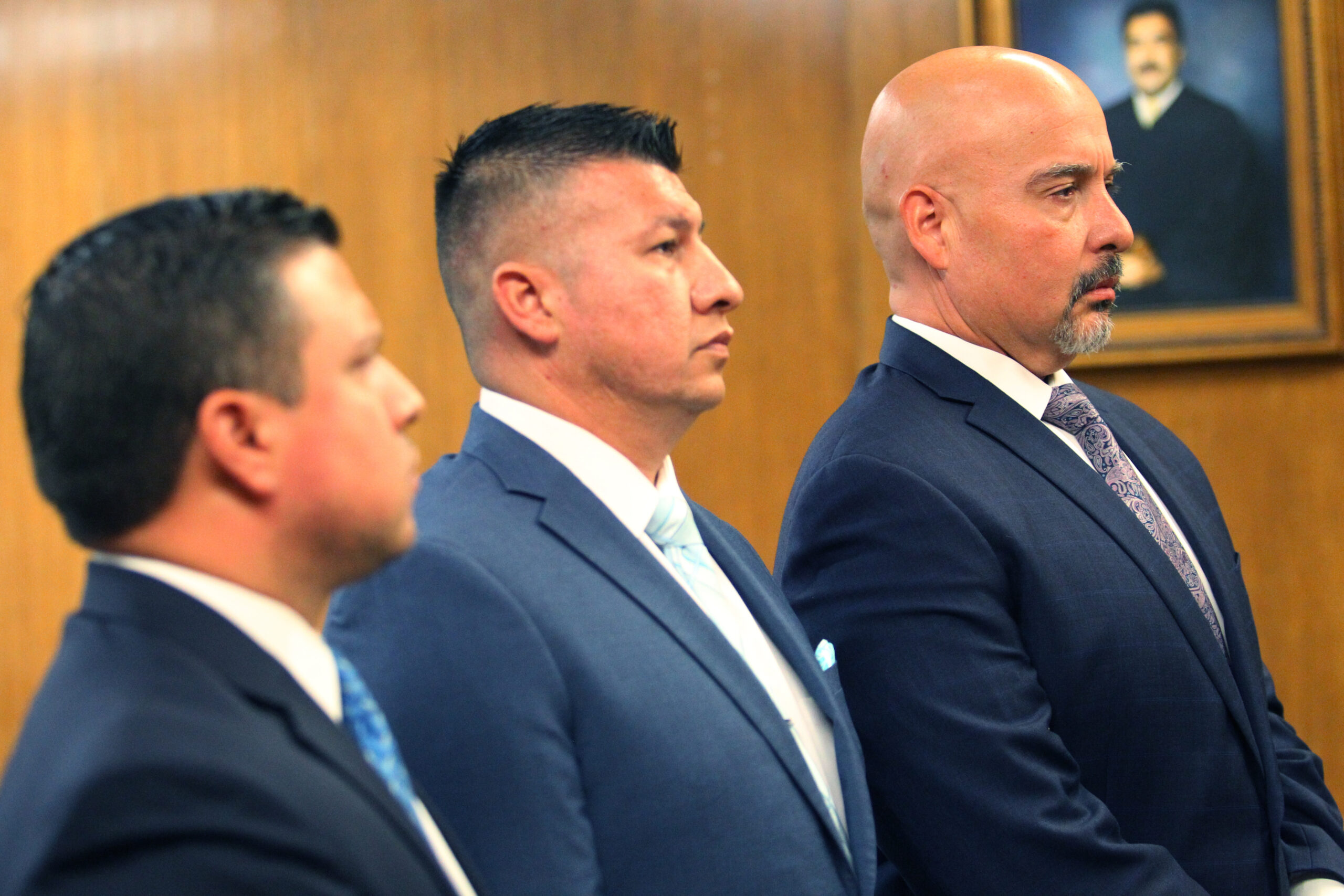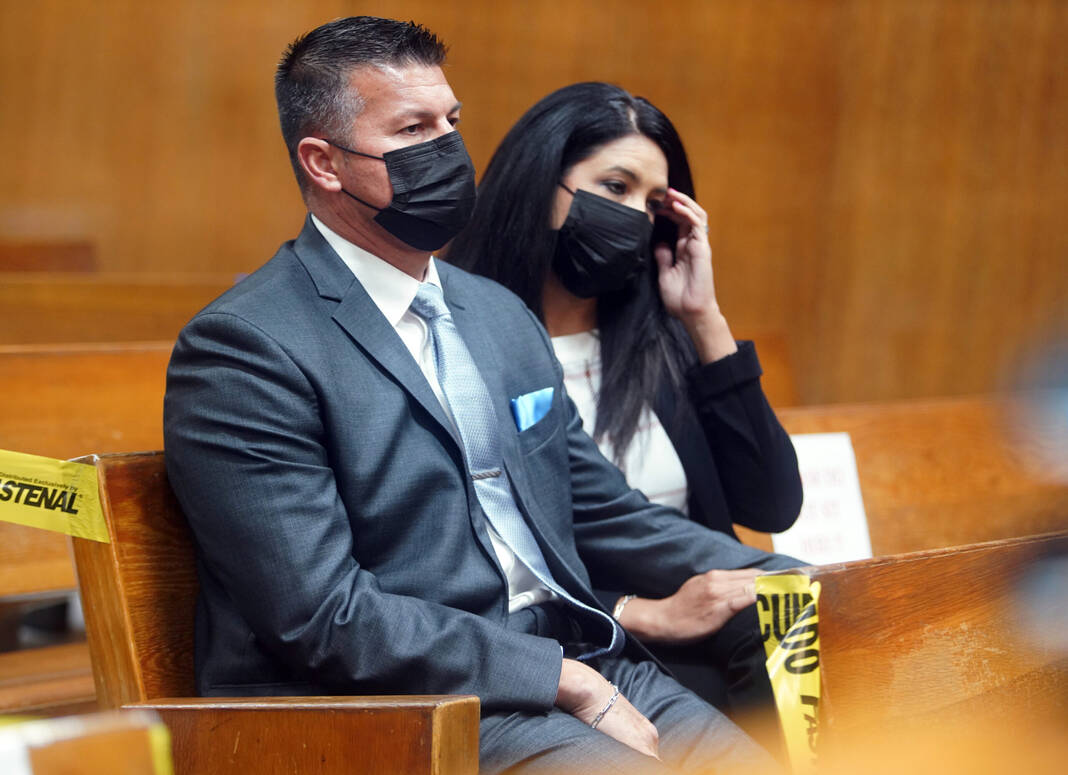On the afternoon before jury selection in the voter fraud trial of Edinburg’s former mayor, his attorneys filed another motion seeking to stop the case from going forward.
The much-watched case against Richard Molina who has pleaded not guilty to an indictment charging him with engaging in organized voter fraud and 11 counts of voter fraud is scheduled to begin Tuesday.
That’s contingent on whether a jury is picked and now on how a visiting judge will rule on a motion to quash the indictment against Molina.
In the motion, which was filed at approximately 3:39 p.m. Thursday, Molina’s defense team argues the motion should be quashed because it violates the U.S. Constitution by failing to provide fair notice; for being subject to arbitrary enforcement; and for having a chilling effect on the fundamental right to vote.
“Section 1.015(b) of the Election Code is unconstitutionally vague because men of common intelligence must necessarily guess at its meaning and differ as to its application,” the motion stated. “The indictment provides inadequate notice and cannot, consistent with the most rudimentary principals (sic) of due process of law, pass constitutional notice.”
This motion also hones into claims made by Molina’s attorneys that prosecutors are targeting the former mayor because he unseated Edinburg’s longtime mayor, Richard Garcia, in 2017. Garcia has ties to Hidalgo County District Attorney Ricardo Rodriguez Jr.’s family. Molina’s attorneys also claim prosecutors are targeting him because Molina voted to end a lucrative insurance contract with the DA’s aunt, who actually filed the initial voter fraud complaint against Molina with the Secretary of State’s Office following his victory.
“The subjectiveness is particularly problematic where, as here, it is combined with existing and familiar relations, and prosecutorial discretion,” the motion stated. “Defendant’s opponent in the 2017 Edinburg mayoral election was Richard Garcia, who is and was the law partner of Terry Palacios, the uncle of Ricardo Rodriguez Jr., the duly elected district attorney of Hidalgo County.”

The motion also mentions his aunt, Mary Alice Palacios, and said Rodriguez acknowledges his office requested the Texas Rangers investigate the allegations and that his office would prosecute anyone involved if the investigation uncovered offenses.
“The record in this case reflects, however, that this is not what happened. Mr. Rodriguez did not enlist the assistance of the Texas Rangers when he was brought documented allegations of voter fraud by Dalia Molina, the wife of the defendant,” the motion stated.
Dalia has also pleaded not guilty to voter fraud allegations.
The motion also said Rodriguez made the decision not to appoint a special prosecutor in the case.
“The capricious and arbitrary construction of the indictment urged by the State will also suppress or ‘chill’ the constitutionally protected activities of Defendant and numerous other persons not before the Court,” the motion stated.
“It acts as a content-based restriction on core political speech, chills protected speech through its impermissibly vague language, and unduly burdens the right to encourage voting.”
Further, the motion alleges that the indictment places deputy registrars in a place where they may not perform this task because of a “credible threat of prosecution.”
“By seeking to register people to vote, Defendant and other deputy registrars also risk exposing themselves to criminal liability,” the motion stated.

HIGH-PROFILE WITNESS
Molina’s defense team, however, isn’t the only side that filed a Thursday afternoon motion to quash.
At around 3:30 p.m., prosecutors filed a motion to quash a defense subpoena that seeks to place Rodriguez, the district attorney, on the witness stand during the trial.
This motion also notes Molina’s claim of prosecutorial retaliation.
“The subpoena at issue is (sic) directs the Criminal District Attorney to make himself available to testify at trial. Issues of selective prosecution or prosecutorial vindictiveness are properly matters before the trial court and are not defensive theories admissible before the jury,” the motion stated. “Viewed against this backdrop of authority, the Defendant failed to meet this standard of materiality. Instead this come (sic) close to harassment and attempted gamesmanship.”
Further, the motion stated that claims of prosecutorial vindictiveness or selective prosecution is a matter of law which the trial court decides, not an issue to litigate before a jury.
“Mr. Rodriguez does not have personal knowledge of any facts related to the guilt or innocence of the Defendant, nor can Mr. Rodriguez give (sic) competent testimony as to a statutory defense or affirmative defense,” the motion stated. “Defendant (sic) attempt to call the elected criminal district attorney is wholly without merit and is an attempt at gamesmanship.”
The motion stated the issue of prosecutorial retaliation was already ruled on by the visiting judge last fall, which state District Judge Carlos Valdez denied Molina’s attempt to disqualify Rodriguez’s office from prosecuting him.
Prosecutors are also attacking Molina’s prosecutorial retaliation claims in a motion for limine – a type of motion filed prior to a trial that asks the judge to set certain rules about the trial.
The state is asking that the judge prohibit Molina’s attorneys from presenting testimony or evidence to the jury that Rodriguez or his office has a personal bias toward Molina; that Molina was singled out or unfairly targeted; or that the motivation behind the investigation or prosecution is somehow improper or political in nature.
“In support of this motion, the State would show this Court that Defendant and his counsel have previously made statements to the public and arguments before this court constituting the above allegations, in apparent attempt to distract from or avoid altogether Defendant’s criminal charges,” the motion stated. “Most, if not all, of these claims have been litigated pre-trial and found unpersuasive.”
Molina has also filed a motion in limine, which is routine in nature.
However, while a section of that motion asking to have a hearing outside the jury’s presence if the state intends to introduce prior bad acts is routine, those alleged prior bad acts do raise eyebrows.
In 2020, the state gave notice that it intends “to offer evidence of other crimes, wrongs and acts in the case-in-chief at the Guilt/Innocence phase.”
Those acts include an allegation that on April 10, 2018, Molina contacted Texas State Rep. Terry Canales and solicited his assistance in obtaining information on the voter fraud investigation and asking Canales to use his influence to halt the Attorney General’s investigation into voter fraud.
That notice also alleges that on Nov. 20, 2017, while serving as a public official, he solicited sex from a woman in exchange for a job.
Lastly, the state wants the jury to know that he encouraged five people to vote in an election where they were not eligible to vote and that on April 10, 2018, he encouraged Erica Molina to not cooperate with law enforcement in the investigation and encouraged her to lie to investigators.
A jury was selected Friday, and the trial is scheduled to begin Tuesday morning and last for more than a week with testimony from more than 20 witnesses.
Editor’s note: This story was updated with new information about the jury being selected.





